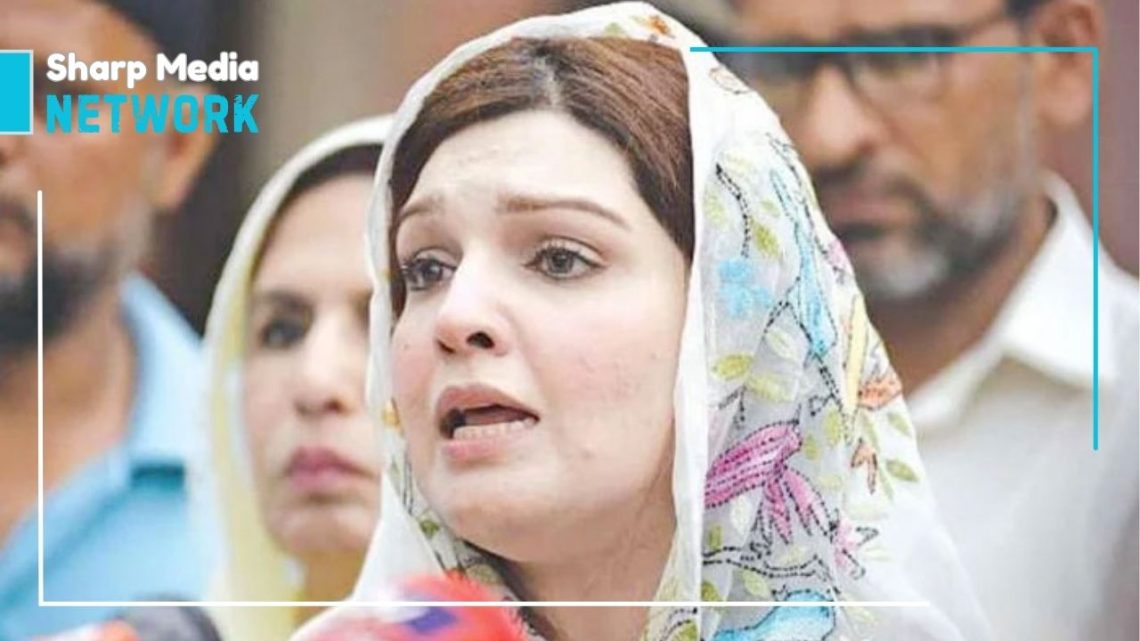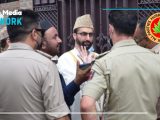
Seminar Discusses a Unified Future for Kashmir Amid Continued Struggles
February 14, 2025At a seminar in ICT, Pakistan, Mushaal Hussein Mullick, wife of Kashmiri leader Yasin Malik, called for intellectual and political efforts to address the ongoing crisis in IIOJK.
Mushaal Hussein Mullick, the wife of Kashmiri freedom leader Yasin Malik, recently emphasized the need for a comprehensive, strategic approach to resolving the Kashmir issue. Speaking at a seminar titled “From Struggle to Unity: Re-imagining Kashmir’s Future” at the International Islamic University Islamabad (IIUI), Pakistan, she stressed the importance of intellectual, legal, and political efforts to overcome the long-standing challenges faced by Kashmiris in Indian Illegally Occupied Jammu and Kashmir (IIOJK).
Mullick began by highlighting the extreme hardships faced by Kashmiris, including lockdowns, restrictions, and a severe lack of basic facilities. She condemned India’s inhumane treatment of the region, which she claimed is part of a systematic effort to suppress the Kashmiri struggle for self-determination.
She also emphasized the need for practical solutions in line with current realities. While advocating for change, Mullick cautioned against wasting energy on efforts that do not yield tangible results. She pointed out that India is altering the region’s demographics through genocidal tactics and planned settlements. Referring to the widespread rejection of Indian elections by Kashmiris, she criticized them as being manipulated and not reflective of the true desires of the people.
Mullick paid tribute to the Kashmiri leaders who have sacrificed their lives for the cause, including Afzal Guru, Maqbool Butt, and her husband, Yasin Malik. She reaffirmed that the sacrifices of these leaders would not be in vain and that their struggle would continue.
Ghulam Muhammad Safi, Convener of APHC-AJK, also addressed the seminar, highlighting the routine nature of atrocities in IIOJK. He spoke of the ongoing human rights crisis in the region, including the use of rape as a weapon of war, and the continuous denial of Kashmiris’ right to self-determination. Safi urged the United Nations to enforce its Security Council resolutions on Kashmir and called for international action to prevent further genocide.
Abdullah Khan from the Pakistan Institute of Conflict and Strategic Studies emphasized that resolving the Kashmir dispute is both a core commitment and a fundamental right. He stressed the role of educational institutions in raising awareness and urged for more academic research on Kashmir to bolster Pakistan’s stance in international forums.
Dr. Manzoor Khan Afridi, Dean of Social Sciences at IIUI, expressed concern over the global indifference to the Kashmir issue. He pointed out that Kashmiris are being deliberately pushed into economic hardship as part of a broader strategy to stifle their resistance.
Dr. Ghufran Ali, the seminar’s organizer, praised the resilience of Kashmiri freedom fighters, noting their decades-long struggle for justice. He described their perseverance as an inspiring example of unwavering dedication.
Dr. Amna Mehmood, in charge of the female campus at IIUI, called for a deeper understanding of the Kashmir dispute. She emphasized the need for comprehensive research and a methodical approach to advocating for Kashmir on the global stage.
The seminar concluded with an interactive Q&A session, fostering a constructive discussion about the way forward for Kashmir’s cause and the role of the international community in supporting its resolution.

